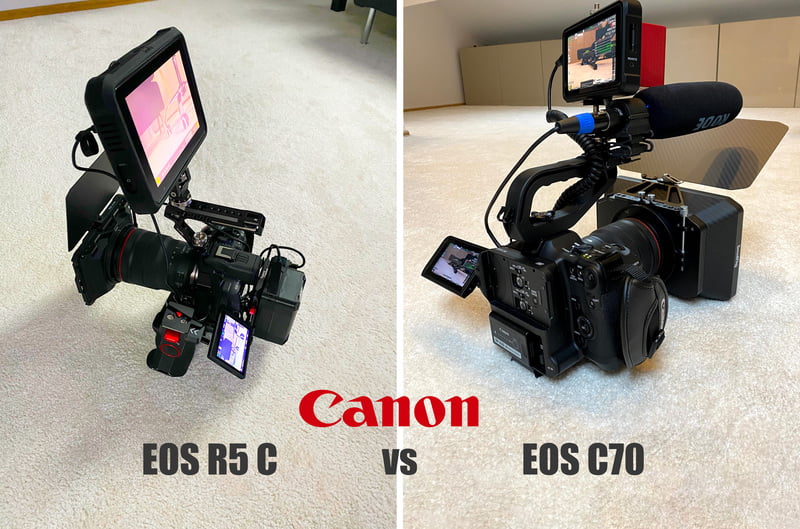Today, I want to talk about Canon EOS C70 and Canon R5 C as we own both in our video production. If you are still deciding between purchasing any of these cameras, then you’re in the right place.
To begin, I prefer not to delve into the specifications of these cameras since I believe such information is readily available online with a quick search.
However, what I can do is provide you with valuable insight from our real-life use case experience with both cameras at HayotFilms. By sharing our perspective, we aim to help you make a knowledgeable decision and select the camera that best fits your needs.
Let’s start.
Canon EOS C70
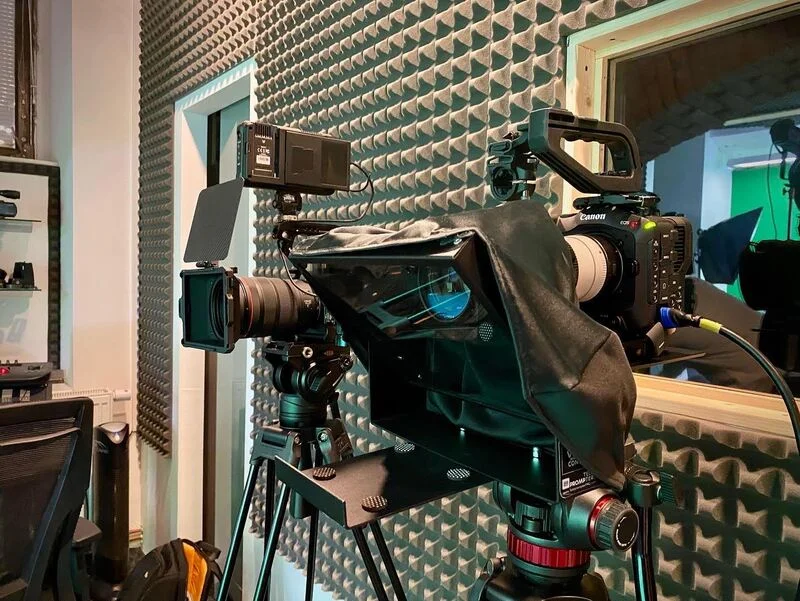
We have owned a Canon C70 for almost two years and our crew loves using this camera for our different types of shootings such as interviews, events, corporate work, and industrial shootings.
Honestly, it has everything you need for creating a quality final product for your client.
For instance, if you’re filming a corporate interview, the camera’s excellent autofocus and two mini XLR inputs allow you to use one for a boom mic and the second for your lavalier mic.
If you have a sound recordist on your set, then you will love a timecode feature for easy syncing in post.
Also, the built-in NDs saved us many times when we were shooting in bright daylight or in front of a big window, which is a normal thing in the corporate world.
You can read more about this interview setup in our blog here.
Canon R5 C
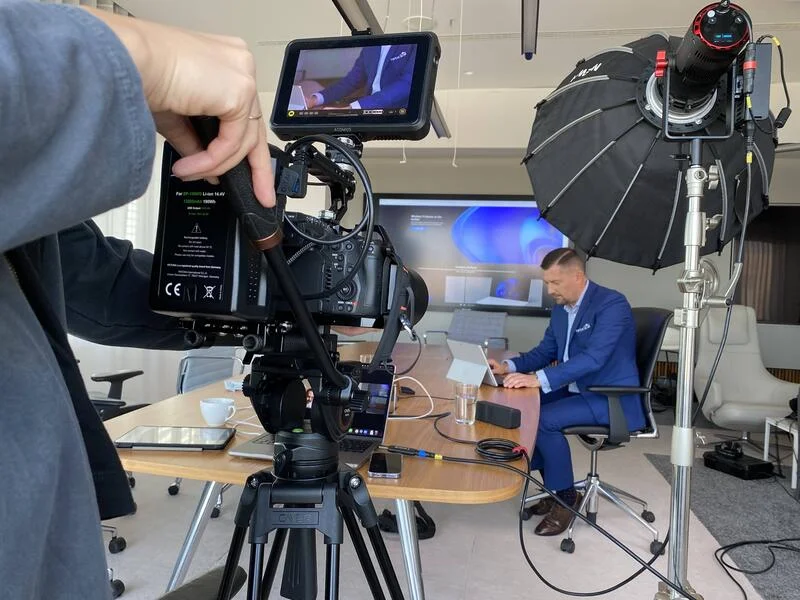
So, what about the Canon R5 C?
You may be wondering why we decided to purchase the R5 C as a second camera instead of another C70, which we love, as I mentioned above.
In addition, having two C70 cameras would have made a great match, with identical colors and sharpness for scenes shot using both cameras, right?
Well, I agree with you.
Ideally, having two identical cameras for interviews is the right choice. You don’t have to worry about the things I mentioned above and editing them would be easy.
But, let me explain why we bought Canon R5 C last year as a B camera for our setup.
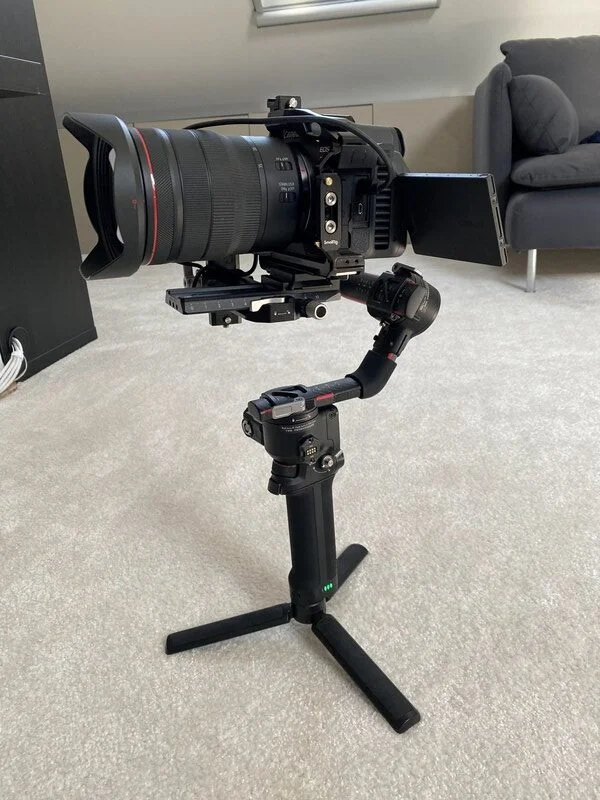
As a video production company in Prague, we do a lot of corporate work. Besides interviews, we also do many b-rolls, which requires us to be more flexible and quick.
In the last year, we’ve made the best decision of our lives by using the R5 C as a ready-to-go gimbal camera.
It’s very compact like the original R5, but still, it has most of the cinema camera features like 10bit WideDR/Log profiles, proxy recording, global shutter, etc.
It matches greatly with C70 in these profiles with small tweaks in post.
In the past, we had R5 and we needed to shoot in LOG profile to get 10bit—which is not the best profile if you need a quick turnaround.
For our R5C, we use the Ronin RS2 with two small rig handles, creating a reasonably lightweight setup compared to having the C70 mounted on it. If you need to film b-rolls for an entire day, you’ll appreciate the comfort.
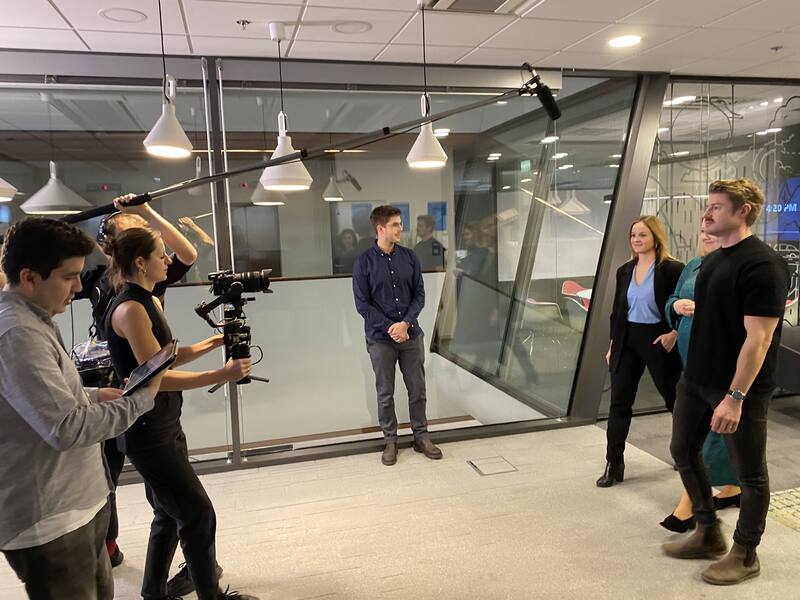
Also, it’s a full-frame camera. We own great RF lenses like 15-35mm 2.8L, 24-70mm 2.8L, and having wide establishment gimbal shots with 15-35mm attached to R5C is delightful.
This is the main reason why we bought the Canon R5 C in the first place. We didn’t need an 8K 60fps or super sharp image, which can be a problem while matching it with the C70.
Note: Many reviewers mentioned that the R5 C has superior autofocus than the C70, but from our experience, it is the opposite.
While it may be true in some situations, I can confidently say that the C70 has the most reliable autofocus. The C70 autofocus doesn’t hunt during interviews, unlike the R5C, which can be very annoying and ruin your shot if you don’t have any b-roll footage to use as a backup.
Pros and Cons of Both Cameras
Here are the pros and cons of each camera when compared. Please keep in mind that everything we write is based on our own experiences.
Pros of Canon C70
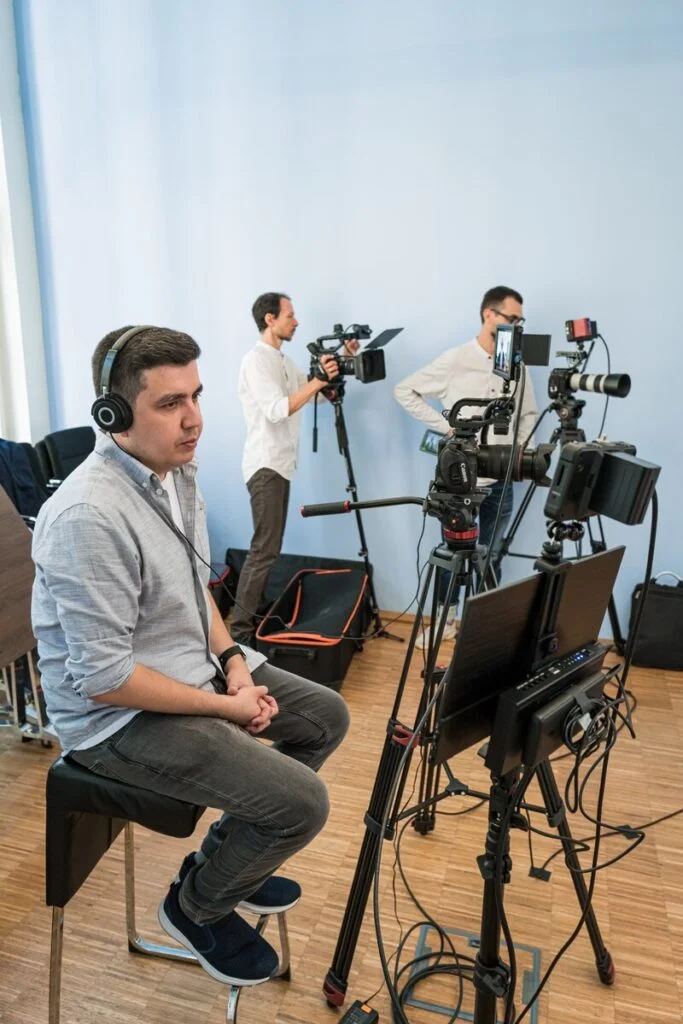
- Very reliable camera including its autofocus feature
- Cinematic image. It has some magical ingredient, which gives you an overall better final image than on R5 C (in our opinion)
- Built-in NDs
- Mini XLR inputs (you will love them for interviews)
- Easy to use because of the buttons around the camera
- Great battery life
- Awesome CLOG2 profile
Cons of Canon C70
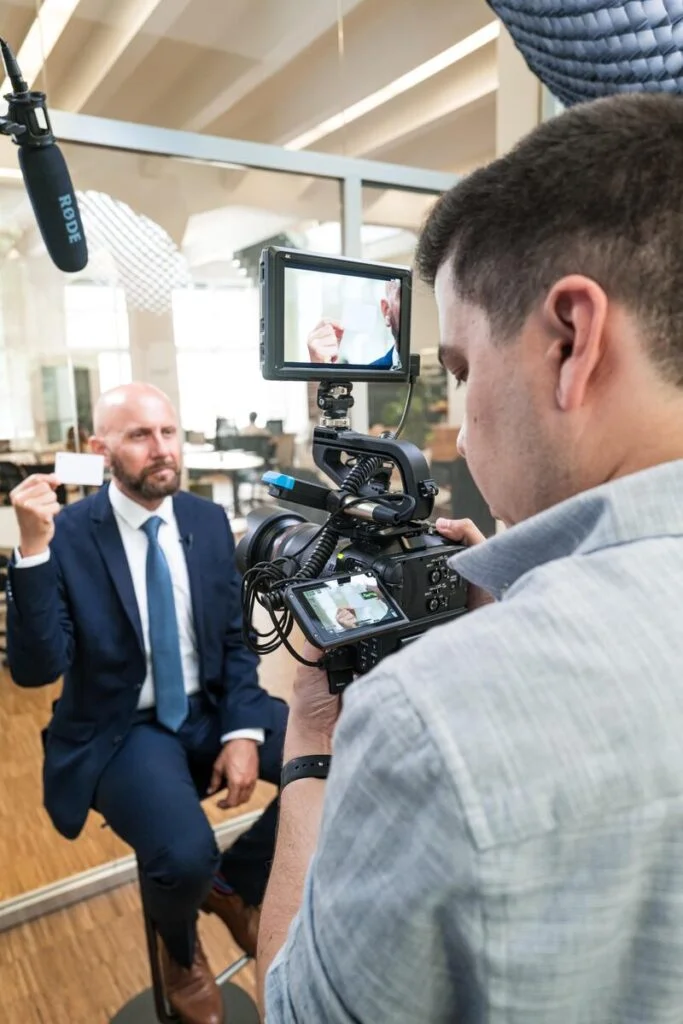
- It’s a little heavy for gimbal work than the R5 C
- Softer image in 4K (Honestly, we’re totally okay with that, because it looks more cinematic, and I think it’s better than having digital over sharpened image. Maybe sometimes you need a sharper image for wider establishment shots.)
Pros of Canon R5 C
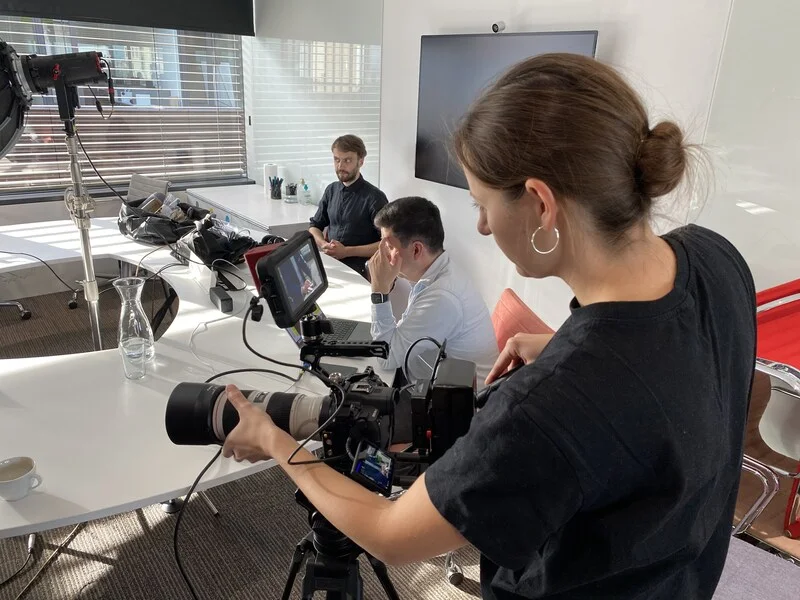
- Very compact and lightweight than the C70 (ideal for gimbal work).
- 8K 60fps (We’ve never used this resolution, but maybe it’s somehow future-proof. Though I doubt it.)
- Full Frame while using RF/EF lenses (We own only RF lenses except for 70-200mm.)
Cons of Canon R5 C
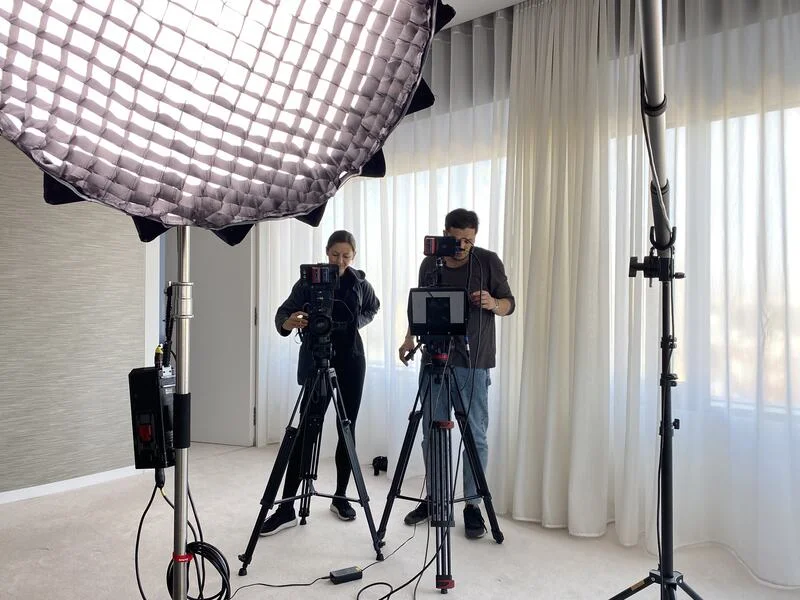
- Awful battery life (We fixed it using mini-V mount batteries from FxLion.)
- Not 100% reliable autofocus
- No XLR or integrated NDs (Though you can use variable ND filters attached to the lens.)
- No CLOG2 (If you don’t shoot RAW)
So, What Camera Would I Recommend?
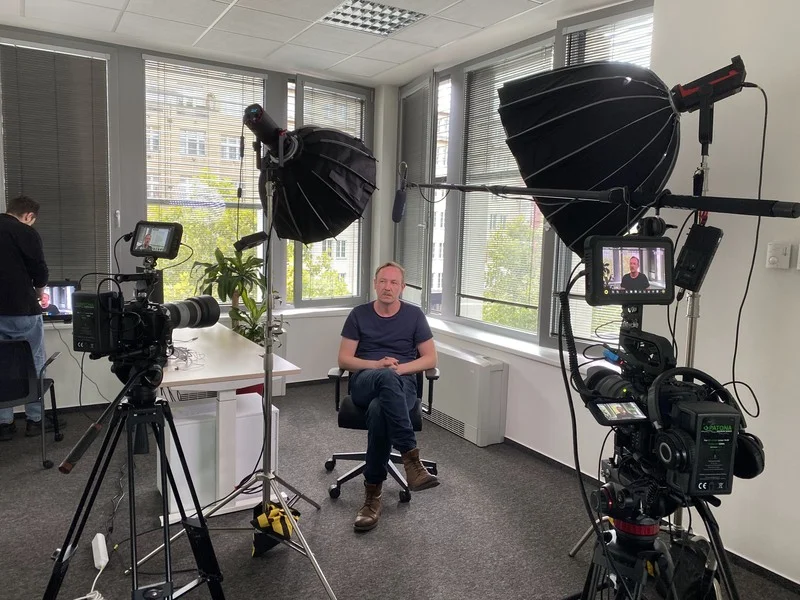
It really depends on your shooting style and what type of videos you produce.
If you do weddings or one-camera corporate interviews with some b-rolls on a gimbal, then I would suggest you go for the Canon R5 C.
If you mostly shoot handheld or on a tripod, then the Canon C70 is a great choice for you. You can also use it for gimbal shots, though the setup will be a little heavier.
Its additional features like mini XLR inputs or built-in NDs will make your shooting experience much better, too.
Bottomline: The ideal setup is having both cameras, so you can do two camera setups as we, at HayotFilms, do.
Conclusion
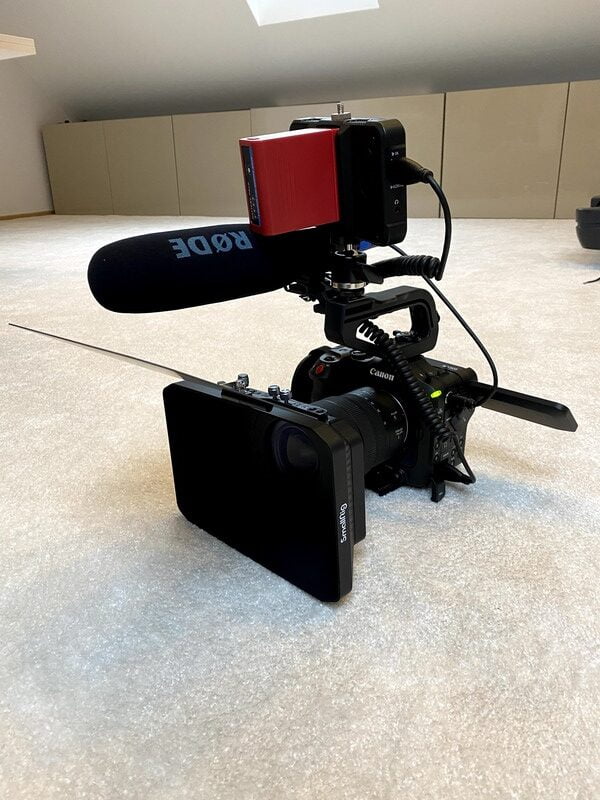
Overall, if I only had to choose one, I would definitely go with the Canon C70 since it’s such a great camera and it has everything you need for any situation.
Want to see the C70 and R5 C in action? Check out some of the work we’ve done at HayotFilms for big brands like Amazon and Microsoft and more.
We used the setups mentioned in this article, and the results speak for themselves.
Whether you’re a professional videographer or a content creator, you can trust these cameras to deliver high-quality footage every time.

